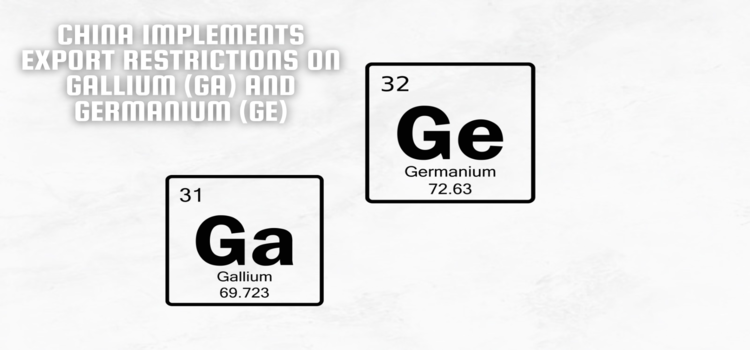Starting from August 1st, China will impose restrictions on the exports of gallium, germanium, and their chemical compounds. Exporters will be required to obtain licenses from China's Ministry of Commerce and provide detailed information about the buyers. According to a report from the UK Critical Minerals Intelligence Centre, China currently accounts for 94% of global gallium production. Other significant gallium producers include Japan, Korea, Russia, and Ukraine. In terms of worldwide germanium output, China contributes 60% of the total. Major suppliers apart from China include Canada, Belgium, the USA, and Russia.
The restriction on the export of gallium and germanium by China is expected to have significant implications for global supply chains and industries that rely on these critical minerals. Gallium is a vital component in the production of semiconductors, LEDs, and solar cells, while germanium is used in optical fibers, infrared optics, and semiconductor devices.
With China being the dominant producer of both gallium and germanium, the export restriction could lead to disruptions in the global market. The need for export licenses and buyer details indicates China's intent to have tighter control over the flow of these minerals and their compounds.
The reliance on China as a major supplier has prompted other countries to reassess their own production capabilities and seek alternative sources. Efforts are underway to ramp up gallium and germanium production in Japan, South Korea, Russia, Ukraine, Canada, Belgium, the USA, and other countries to reduce dependence on Chinese exports.
Diversifying the supply chain for gallium and germanium is crucial to ensure stability and avoid potential shortages in the future. It may also drive innovation and investment in domestic production capabilities in various regions.
As industries such as electronics, renewable energy, and telecommunications continue to grow, the availability and affordability of gallium and germanium will play a pivotal role in supporting technological advancements and sustainable development globally. Monitoring developments in the global supply of these critical minerals will be essential for businesses and policymakers alike.
